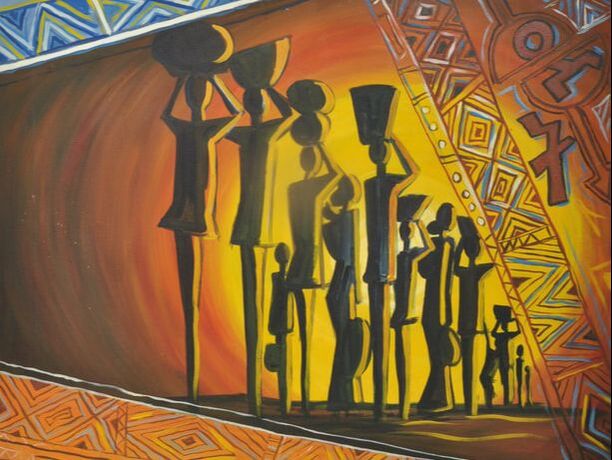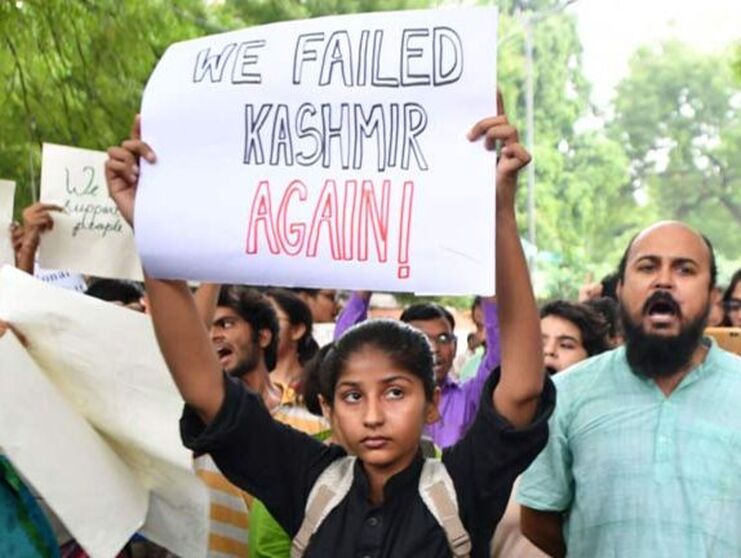|
|
|
The concept of ‘cosmology’ has a long-standing history in anthropology. Derived from the ancient Greek ‘cosmos’ – order, harmony, world – and ‘logos’ – discourse – cosmology was historically intended as the knowledge or study of the structure and shape of the world.
In anthropology, cosmologies are conventionally defined as widespread representations of the world as a hierarchically ordered whole. Traditionally associated with the study of religions, cosmologies have progressively come to refer more generally to systems of classifications, and their related moral and emotional attitudes. My Identities article, ‘Cosmologies and migration: on worldviews and their influence on mobility and immobility’, shows that this concept can be applied to understanding the hierarchical worldviews of a diasporic population, such as Eritrean migrants and their left behinds. In particular, the article argues that these worldviews are crucial to understand why people are ready to undertake very dangerous and complex journeys to reach their their 'promised land', as suggested by the Eritrean painter Ambasager Welday in his beautiful reinterpretation of the biblical exodus (see the image above).
0 Comments
I was just out of the TV studio after having finished an interview about a new book about social cohesion and migration that I had edited together with two colleagues. The interview went well, I was tired, it was late and I wanted to get home to sleep. Standing in the lobby of the Danish National Broadcasting Company I checked my email on my smartphone. I could see the headings of all new incoming emails, and the first of these included just one word: 'Liar'.
The email related to the interview that I had just carried out. At least this person had signed his email with a name that seemed to exist. Someone whom, when I looked him up, participated in discussions on the website of one of Scandinavia’s most radical right-wing organisations. In other instances, where someone – who disagreed beyond strongly with my research results - has sent me an email or even paper letters, there has not been any signature. Just a strong message of ‘you are wrong’. I am not alone in having these kinds of experiences. In the spring of 2018 I carried out a survey among migration researchers in four Danish universities. The results of the survey are discussed in my Identities article, 'Boundary work: investigating the expert role of Danish migration researchers'. The survey focused on the researchers’ experience with participating in the public debate and experiences in that regard. The survey showed that Danish migration researchers were active participants in the public debate, for example by answering questions from news reporters, communicating research via TV and radio programmes, and writing articles for newspapers. Many researchers saw these activities as their duty; it was a way of contributing to a society that paid for their salary and which they wanted to keep informed and knowledgeable.
Populists are in power, not because they miraculously solved the overwhelming problems the world faces today but, rather, they have captivating stories to tell. While the recent rise of populism has led to an immense body of academic work — now an industry of its own — this bourgeoning scholarship has focused heavily on social and economic drivers, yet neglected the narrative force of such movements. In fact, if politics is basically about storytelling, populist politicians have perfected the art. An essential question is then: What do populisms narrate?
National (or identitarian) populist leaders simply tell the same stories to their people. If one were to simply hide the names of leaders and national references in the statements of populists, it would be quite difficult to identify whether they belong to US President Donald Trump, Hungarian Prime Minister Viktor Orbán or Turkish President Tayyip Erdoğan. They all position themselves to lead their respective nations with honour, well deserved from the past, through the troubled waters of the present, to the shores of a bright(er) future. By that narrative, they weave seemingly unconnected events to make sense of reality.
'Free Kashmir', reads the placard held by a young Indian woman during an anti-Citizenship Amendment Act agitation at the Gateway of India, Mumbai, on 6 January 2020. That India cannot tolerate such 'separtist sentiments' is central to the outrage over the placard. People in her supporting circle defend it on the grounds that it meant freedom from Internet lockdown imposed since 5 August 2019 across Kashmir. The woman comes out with a statement: 'I was voicing my solidarity for the basic constitutional right'.
As Kashmiris, what does it mean to be shown solidarity with terms and conditions, one that disallows a Kashmiri from envisioning their freedom but dictates its meanings and interpretations for them? In our Identities article, 'On Solidarity: Reading Love, Loss, and Longing in Kashmir', we engage with the question of solidarity through a critical reading of Sahba Husain’s book Love, Loss, and Longing in Kashmir. The multiple ways in which claims of solidarity are articulated by Indian ‘progressives’ often result in reflecting dominant narratives that obfuscate the lived realities of the occupied Kashmiri people. This is brought forth in the piece through an analysis of how the concepts of disillusionment, alienation, resilience find expression in these works. |
|
Explore Identities at tandfonline.com/GIDE |
|
The views and opinions expressed on The Identities Blog are solely those of the original blog post authors, and not of the journal, Taylor & Francis Group or the University of Glasgow.




